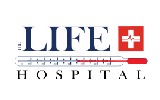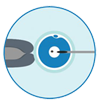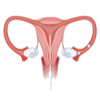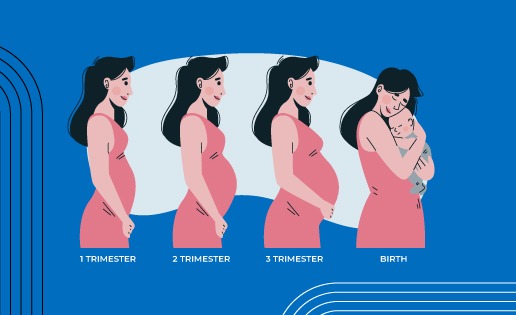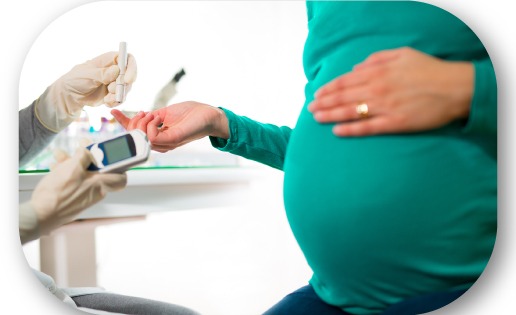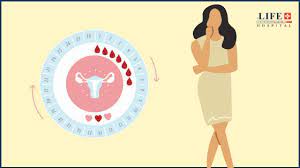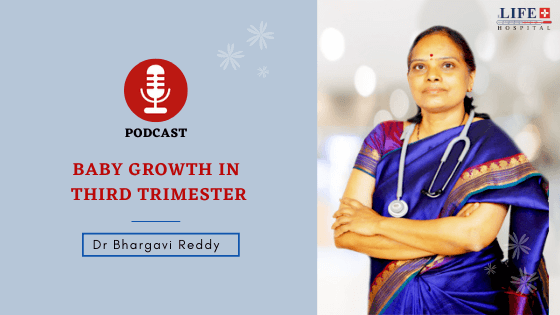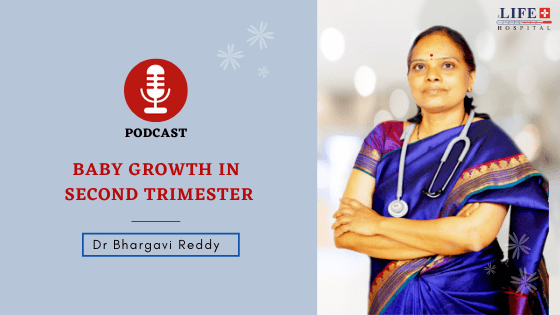Step into parenthood with the best IVF treatment
Live the joys of parenthood and embark on a beautiful journey of life with the best IVF fertility treatment
THE LIFE PLUS HOSPITAL is COVID 19 Safe
1. Our Hospital premises are COVID safe
2. Regular sanitization of clinic & hospital premises
3. Immediate medical assistance through Online Consultation
Step into parenthood with the best IVF treatment
Live the joys of parenthood and embark on a beautiful journey of life with the best IVF fertility treatment.
THE LIFE PLUS HOSPITAL is COVID 19 Safe
- Our Hospital premises are COVID safe
- Regular sanitization of clinic & hospital premises
- Immediate medical assistance through Online Consultation

What is IVF Treatment?
Today, in vitro fertilization (IVF) is practically a household word. But not so long ago, it was a mysterious procedure for infertility that produced what was then known as “test-tube babies.” Louise Brown, born in England in 1978, was the first such baby to be conceived outside her mother’s womb.
In vitro fertilization (IVF) is a type of assistive reproductive technology (ART). It involves retrieving eggs from a woman’s ovaries and fertilizing them with sperm. This fertilized egg is known as an embryo. The embryo can then be frozen for storage or transferred to a woman’s uterus.
Depending on your situation, IVF can use:
- your eggs and your partner’s sperm
- your eggs and donor sperm
- donor eggs and your partner’s sperm
- donor eggs and donor sperm
- donated embryos
Your doctor can also implant embryos in a surrogate, or gestational carrier. This is a woman who carries your baby for you.
SUCCESS RATE OF IVF?
The success rate of IVF varies. According to Recent Statistics, the live birth rate for women under age 35 undergoing IVF is 41 to 43 percent. This rate falls to 13 to 18 percent for women over the age of 40.
Let's Schedule Your Appointment
Treatment

Process
The first step to IVF is to take medications that can help your ovaries produce eggs that are ready for fertilization. Even if ovulation is normal, fertility drugs are used to produce more than a single egg because pregnancy rates are higher with more eggs.Once the ovaries have produced enough eggs, the doctor will remove the eggs from your body. This process is known as egg retrieval. An ultrasound is done to visually guide a small needle through the vagina to one ovary and then to the other. This process is usually painless. The needle will contain follicles. The follicular fluids will be removed by gentle suction that carries the egg along with the fluid. This process takes 30-40 minutes. The fluid from the follicles – that contains the egg – is suctioned by the doctor and taken into a test tube. The number of eggs produced depends upon multiple factors such as aging, response to ovarian stimulation, ovarian reserve, etc. Once eggs reach the lab, experts examine them to determine maturity and quality. Mature eggs are transferred into a special culture medium, placed in an incubator and within a few hours of egg retrieval are fertilized with sperm. The eggs and sperm are stored together in a special container, and fertilization happens.
About 3-5 days after the egg retrieval, 1 or more embryos are put into your uterus. This process is called embryo transfer. The doctor slides a thin tube through your cervix into your uterus and inserts the embryo directly into your uterus through the tube.
Pregnancy happens if any of the embryos attach to the lining of your uterus.

Our Doctors
Why The Life Plus Hospital?
 The Life Plus Hospital is COVID-19 safe
The Life Plus Hospital is COVID-19 safe
Your safety is taken care of by thermal screening, social distancing, sanitized clinics, and hospital rooms, sterilized surgical equipment, and mandatory PPE kits during surgery.
 Medical Expertise With Technology
Medical Expertise With Technology
Our Doctors spend a lot of time with you to diagnose your condition. You are assisted in all pre-assisted Hospitalisation process. We offer advanced laser and laparoscopic surgical treatment. Our procedures are USFDA approved.
 Assisted Surgery Experience
Assisted Surgery Experience
A dedicated Medical Coordinator assists you throughout the surgery journey from insurance paperwork, to free commute from home to hospital & back and admission-discharge process at the hospital.
 Post Natal Care
Post Natal Care
We offer free follow-up consultations and instructions including dietary tips as well as exercises to every patient to ensure they have a smooth recovery to their daily routines.
The Life Plus Hospital in Numbers
IVF / ICSI
Surrogacy
IUI
Healthy IVF Babies
Why Is In Vitro Fertilization Performed?
IVF helps people with infertility who want to have a baby. IVF is expensive and invasive, so couples often try other fertility treatments first. These may include taking fertility drugs or having intrauterine insemination. During that procedure, a doctor transfers sperm directly into a woman’s uterus.
Infertility issues for which IVF may be necessary include:
- reduced fertility in women over the age of 40
- blocked or damaged fallopian tubes
- reduced ovarian function
- endometriosis
- uterine fibroids
- male infertility, such as low sperm count or abnormalities in sperm shape
- unexplained infertility
Parents may also choose IVF if they run the risk of passing a genetic disorder on to their offspring. A medical lab can test the embryos for genetic abnormalities. Then, a doctor only implants embryos without genetic defects.
How Do I Prepare for In Vitro Fertilization?
Before beginning IVF, women will first undergo ovarian reserve testing. This involves taking a blood sample and testing it for the level of follicle-stimulating hormone (FSH). The results of this test will give your doctor information about the size and quality of your eggs.
Your doctor will also examine your uterus. This may involve doing an ultrasound, which uses high-frequency sound waves to create an image of your uterus. Your doctor may also insert a scope through your vagina and into your uterus. These tests can reveal the health of your uterus and help the doctor determine the best way to implant the embryos.
Men will need to have sperm testing. This involves giving a semen sample, which a lab will analyze for the number, size, and shape of the sperm. If the sperm are weak or damaged, a procedure called intracytoplasmic sperm injection (ICSI) may be necessary. During ICSI, a technician injects sperm directly into the egg. ICSI can be part of the IVF process.
Choosing to have IVF is a very personal decision. There are a number of factors to consider.
- What will you do with any unused embryos?
- How many embryos do you wish to transfer? The more embryos transferred, the higher the risk of multiple pregnancies. Most doctors won’t transfer more than two embryos.
- How do you feel about the possibility of having twins, triplets, or higher-order multiple pregnancies?
- What about the legal and emotional issues associated with using donated eggs, sperm, and embryos or a surrogate?
- What are the financial, physical, and emotional stresses associated with IVF?
How Is In Vitro Fertilization Performed?
There are five steps involved in IVF:
- stimulation
- egg retrieval
- insemination
- embryo culture
- transfer
Stimulation
A woman normally produces one egg during each menstrual cycle. However, IVF requires multiple eggs. Using multiple eggs increases the chances of developing a viable embryo. You’ll receive fertility drugs to increase the number of eggs your body produces. During this time, your doctor will perform regular blood tests and ultrasounds to monitor the production of eggs and to let your doctor know when to retrieve them.
Egg Retrieval
Egg retrieval is known as follicular aspiration. It’s a surgical procedure performed with anesthesia. Your doctor will use an ultrasound wand to guide a needle through your vagina, into your ovary, and into an egg-containing follicle. The needle will suction eggs and fluid out of each follicle.
Insemination
The male partner will now need to give a semen sample. A technician will mix the sperm with the eggs in a petri dish. If that doesn’t produce embryos, your doctor may decide to use ICSI.
Embryo Culture
Your doctor will monitor the fertilized eggs to ensure that they’re dividing and developing. The embryos may undergo testing for genetic conditions at this time.
Transfer
When the embryos are big enough, they can be implanted. This normally occurs three to five days after fertilization. Implantation involves inserting a thin tube called a catheter inserted into your vagina, past your cervix, and into your uterus. Your doctor then releases the embryo into your uterus.
Pregnancy occurs when the embryo implants itself in the uterine wall. This can take 6 to 10 days. A blood test will determine if you’re pregnant.
What Are the Complications Associated with In Vitro Fertilization?
As with any medical procedure, there are risks associated with IVF. Complications include:
- multiple pregnancies, which increases the risk of low birth weight and premature birth
- miscarriage (pregnancy loss)
- ectopic pregnancy (when the eggs implant outside the uterus)
- ovarian hyperstimulation syndrome (OHSS), a rare condition involving an excess of fluid in the abdomen and chest
- bleeding, infection, or damage to the bowels or bladder (rare)
What Is the Long-Term Outlook?
Deciding whether to undergo in vitro fertilization and how to try if the first attempt is unsuccessful, is an incredibly complicated decision. The financial, physical, and emotional toll of this process can be difficult. Speak with your doctor extensively to determine what your best options are and if in vitro fertilization is the right path for you and your family. Seek a support group or counselor to help you and your partner through this process.
Packages:
- Single-cycle Plan (Self): INR 70,000.00
Inclusions: Procedural charges (Oocyte aspiration, Embryology, Embryo Transfer)
- Semen Processing Charges
- Media and Lab Consumable Charges
- Consultations and Counseling
- Operation Theatre Charges
- Anesthetist Charges
- Nursing Services charges
Exclusions:
- Follicular Scans
- Medicines and injections
- Blood tests
IVF/ICSI Package Plan (Self): 2 Cycles INR 1,50,000
Inclusions:
Procedural charges (Oocyte aspiration, Embryology, Embryo Transfer)
- Semen Processing Charges
- Media and Lab Consumable Charges
- Consultations and Counseling
- Operation Theatre Charges
- Anesthetist Charges
- Nursing Services charges
Exclusions:
- Follicular Scans
- Medicines and injections
- Blood tests
In this package, If both Cycles fail the third cycle will be carried out free of procedural charges. Patients will have to bear only the medicine, scan, and blood test charges.
Terms And Conditions:
This will be a non-refundable amount and will not be refunded at any stage of the treatment. And Frozen embryo transfer of supernumerary embryos from the previous cycle will also be considered as a cycle, however, patients can choose to undergo either a fresh cycle or a frozen embryo cycle but only one procedure is considered.
Get in Touch
Tell us about your problems and we’ll figure out the best treatment option for you.
Life Plus hospital
Women and Child Care Hospital in Indiranagar | LifePlus Hospital
At Life plus hospital, we offer a comprehensive range of women’s health services. The Department is managed by highly experienced lady gynecological doctors who offer specialized attention and compassionate care for women
Let's Schedule Your Appointment
IUI & IVF SUCCESS STORY
https://youtu.be/3sBjEYtzV2Y
IVF Treatment Faqs
In vitro fertilization (IVF) is the most common type of assisted reproductive technology (ART), used to create an embryo by bypassing certain causes of infertility, such as mild sperm abnormalities in men, and fallopian tube or ovulation irregularity in women.
In general, patients will seek advice from a fertility doctor after one year of trying unsuccessfully to get pregnant. The chances of a fertile couple conceiving a child in any given month (called the natural pregnancy rate) are around 20%; resulting in roughly ninety percent of couples becoming pregnant after one year of trying to conceive.
According to national statistics from the Center for Disease Control, the average IVF success rates using one’s own eggs begin to drop around age thirty and dips rapidly in the mid-30s and early 40s, due to lower egg quantity and quality.
Normally, patients are asked to wait for one or two full menstrual cycles before resuming another IVF cycle. Certain additional tests may be needed that could delay subsequent IVF cycles.
